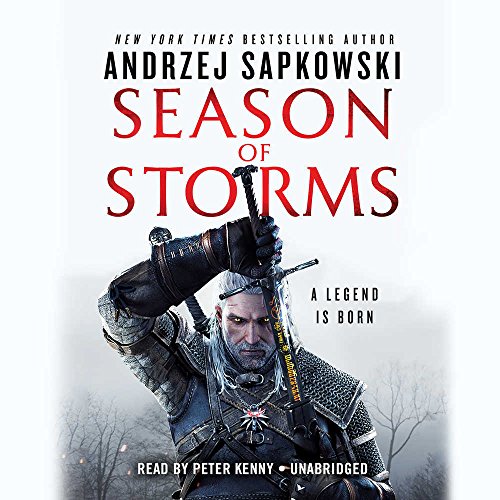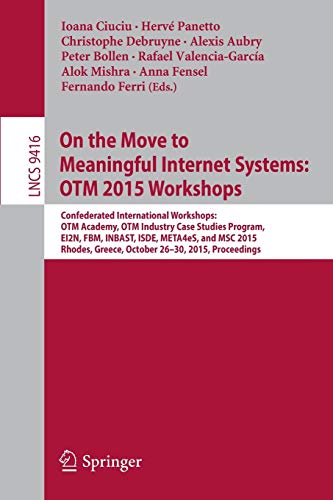
Technen
Elements of Recent History of Information Technologies with Epistemological Conclusions
von Andrzej Piotr WierzbickiThe book expresses the conviction that the art of creating tools - Greek techne - changes its character together with the change of civilization epochs and co-determines such changes.
This does not mean that tools typical for a civilization epoch determine it completely, but they change our way of perceiving and interpreting the world.
There might have been many such epochs in the history of human civilization (much more than the three waves of agricultural, industrial and information civilization).
This is expressed by the title Technen of the book, where n denotes a subsequent civilization epoch.
During last fifty years we observed a decomposition of the old episteme (understood as a way of creating and interpreting knowledge characteristic for a given civilization epoch) of modernism, which was an episteme typical for industrial civilization.
Today, the world is differently understood by the representatives of three different cultural spheres: of strict and natural sciences; of human and social sciences (especially by their part inclined towards postmodernism) and technical sciences that have a different episteme than even that of strict and natural sciences.
Thus, we observe today not two cultures, but three different episteme.
The book consists of four parts.
First contains basic epistemological observations, second is devoted to selected elements of recent history of information technologies, third contains more detailed epistemological and general discussions, fourth specifies conclusions.
The book is written from the cognitive perspective of technical sciences, with a full awareness - and discussion - of its differences from the cognitive perspective of strict sciences or human and social sciences.
The main thesis of the book is that informational revolution will probably lead to a formation of a new episteme.
The book includes discussions of many issues related to such general perspective, such as what is technology proper; what is intuition from a perspective of technology and of evolutionary naturalism; what are the reasons for and how large are the delays between a fundamental invention and its broad social utilization; what is the fundamental logical error (using paradoxes that are not real, only apparent) of the tradition of sceptical philosophy; what are rational foundations and examples of emergence of order out of chaos; whether civilization development based on two positive feedbacks between science, technology and the market might lead inevitably to a self-destruction of human civilization; etc.
von P.
Wierzbicki, Andrzej.
- Erstmals veröffentlicht
- Jul 25, 2014
- Verlage
- Springer
Bücher

Central and Eastern Europe after the First World War
Piotr Juszkiewicz

Season of Storms
Andrzej Sapkowski

Bodzia
Andrzej Buko

Polacy w niepodległej Ukrainie
Andrzej Bonusiak

Ideology, Rhetoric, Aesthetics
Andrzej Warminski

Linear Mixed-Effects Models Using R
Andrzej Galecki

Novel Concepts in Catalysis and Chemical Reactors
Andrzej Cybulski

On the road to Babadag
Andrzej Stasiuk

Auschwitz i Jerozolima
Piotr Weiser

Ochrona prawa do wizerunku
Piotr Ślęzak

Kronika Stowarzyszenia Bibliotekarzy Polskich
Andrzej Kempa

"Niemcy sudeccy" 1848-1948
Piotr M. Majewski

Rozwój regionalny a rozwój społeczny
Andrzej Bocian

Archinotatnik
Janusz Andrzej Włodarczyk

Medycyna ratunkowa i katastrof
Zawadzki, Andrzej (anestezjologia)

Encyklopedia dla dociekliwych
Piotr Wrzosek

Rywale z podwórka
Andrzej Soysal

Dublańska Akademia
Piotr Skrijka

Oaza na Kopernika
Andrzej Friszke

Dėmahrafichnai︠a︡ situatsyi︠a︡ na Belarusi, 1898-1989
Piotr Eberhardt

Seasons, Op. 37a
Piotr Ilyich Tchaikovsky
Ähnliche Bücher

Molecular Design in Inorganic Biochemistry
Daniel Rabinovich

Molecular Virology
Susanne Modrow

Radiative Processes in Discharge Plasmas
Joseph M. Proud

Care Giving for Alzheimer’s Disease
Verna Benner Benner Carson

Allgemeine Algebra und Anwendungen
Dr Dorninger

Shoulder Surgery Rehabilitation
Giovanni Di Giacomo
This book aims to equip physiotherapists rehabilitation specialists and orthopedics to provide the best possible care for patients who have undergone surgery for a range of the more common shoulder pathologies, including fractures of the proximal third of the humerus, arthritis and prosthesis of glenohumeral joint, glenohumeral instability, rotator cuff lesions, other athletic injuries of the shoulder.

冴えない彼女の育てかた13
丸戸 史明

Einführung in das Risikomanagement
Heinz Cremers

Atmungsgymnastik und Atmungstherapie
Franz Kirchberg

On the Move to Meaningful Internet Systems : OTM 2015 Workshops : Confederated International Workshops
Ioana Ciuciu
This volume constitutes the refereed proceedings of the following 8 international workshops: otm academy; otm industry case studies program; enterprise integration, interoperability, and networking, ei2n; international workshop on fact based modeling 2015, fbm; industrial and business applications of semantic web technologies, inbast; information systems, om distributed environment, isde; methods, evaluation, tools and applications for the creation and consumption of structured data for the e-society, meta4es; and mobile and social computing for collaborative interactions, msc 2015.

Robust Stabilization Against Structured Perturbations
Shankar P. Bhattacharyya

Key Factors of Combustion
Nikolai M. Rubtsov

Ultrahigh-Speed Optical Transmission Technology
Hans-Georg Weber

The Final Rolls
Henry Laurens Dawes

Be Beryllium
Hans K. Kugler

Coronary Artery Disease
Gregory W. Barsness

Linear Stochastic Systems
Anders Lindquist

EU Labor Market Policy
A. Schellinger

Software Engineering for Large Software Systems
B. A. Kitchenham

Über die Ausbreitung von Ultraschall in Luft
Harald Kickert

Engineering
T. K. Ghose

Neuronal Death by Accident or by Design
C. E. Henderson

Sedimentary Carbonate Minerals
Friedrich Lippmann

Recommendation and Search in Social Networks
Özgür Ulusoy

Models of Neural Networks IV
Jack D. Cowan

Frases Geniais
Paulo Buchsbaum

Fortnite
Josh Gregory

Fundamental and Advanced Fetal Imaging
Beth Kline-Fath MD

Pathologie
Manfred Dietel

The Dutch East India Company and Mysore, 17621790
Jan Van Lohuizen

Discovering Psychology & Psych2Go Access Card
Don H. Hockenbury

Vom Fachexperten zum Wissensunternehmer
Wolfgang Reiber

Object-Oriented Technology.Ecoop 2006 Workshop Reader
Charles Consel,Mario S. Dholt

Advanced High Voltage Power Device Concepts
B. Jayant Baliga

QoS in Packet Networks
Kun I. Park

Global Land Ice Measurements from Space
Jeffrey S. Kargel

Excited States in Quantum Chemistry
Cleanthes A. Nicolaides

The Piano Tuner
Daniel Mason

On Fuzziness
Rudolf Seising

Die programmierte Prüfung des Großhandelskaufmanns
Hans H\xfcttner

Bridging Occupational, Organizational and Public Health
Georg F. F. Bauer

Campaign Military English Dictionary
Richard Bowyer

The South African Novel in English
Kenneth Parker

Current Developments in Bioerosion
Max Wisshak,Leif Tapanila

Evolutionary Protistology
Lynn Margulis

Value Chain Marketing
Stephanie Hintze











